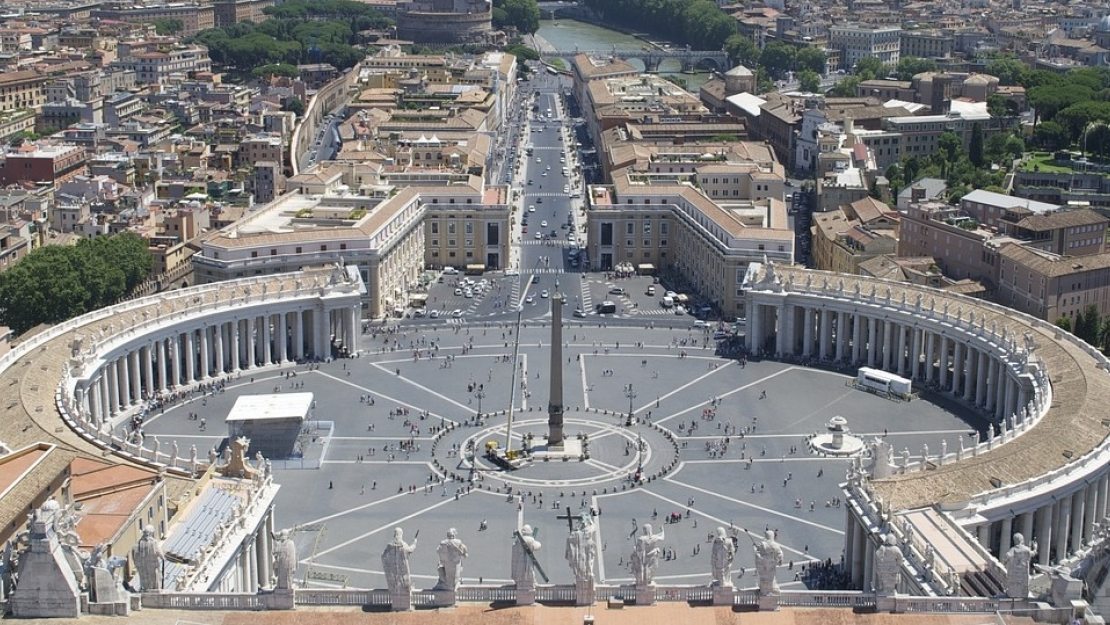Controversy about secular court ruling on dismissal of a nun under canonical procedure

In an unusual case, a secular civilian court has issued a ruling against the Vatican’s in-house canonical procedures in the case of the dismissal of a French nun from her order and has sparked discussions on religious autonomy. On April 3, the Lorient tribunal ruled in favour of a nun who turned to the French court after being removed from a monastery in Brittany. The Vatican replied in a written statement that such a ruling on "internal discipline and membership in a religious institute" would be a "serious violation of the fundamental rights to religious freedom and freedom of association of Catholic faithful."
The ruling by the Lorient tribunal ordered the retired Canadian Cardinal Marc Ouellet and the two religious who assisted him in the investigation, which lead to the dismissal of Sabine de la Valette, formerly known as Mother Marie Ferréol, to pay the former nun a high sum in compensation for alleged material damages, "moral prejudice" and "lack of impartiality" in their decision to dismiss her from her religious community. The Congregation of the Dominican Sisters of the Holy Spirit, the nun's former community, was also ordered to pay a compensation.
The Vatican, in a written note replied that the Holy See learned about the ruling “only from the press.” Furthermore, Cardinal Marc Ouellet, who at the time of the event was Prefect of the Congregation for Bishops, “never received any summons from the Lorient Tribunal.” According to the Director of the Holy See Press Office, a ruling of the Lorient Tribunal would raise "not only significant issues concerning immunity, but if it ruled on internal discipline and membership in a religious institute, it might have constituted a serious violation of the fundamental rights to religious freedom and freedom of association of Catholic faithful.”
Indeed, religious autonomy, which refers to the freedom of religious communities to organise themselves without government interference, is a central element of the right to freedom of religion as enshrined in international human rights law. In this context, the European Court for Human Rights (ECtHR) underlined in a ruling that “the autonomous existence of religious communities is indispensable for pluralism in a democratic society” (Metropolitan Church of Bessarabia and Others v Moldova 2001, para. 118). One of the Court's judges, De Gaetano, has stressed in this regards that "respect for the autonomy of religious communities implies, in particular, that the state should accept the right of such communities to react, in accordance with their own internal canons, rules and other interests, to any dissent or dissident movement, in much the same way as a member of any non-religious organisation or club will be dealt with according to the statutes of that organisation or club." In the same manner, the ECtHR has upheld the dismissal of a former Catholic priest, who publicly held views dissenting from the church's teaching in the case Fernandez Martínez v Spain (2014).
On the other hand, it has been observed that when "leaving or being expelled from the group also has financial consequences", the ECtHR has weighed "these individual consequences against the interests of the faith or belief community" (see: Arie de Pater and Dennis P. Petri, Abrasive rights, The scope and limitations of religious autonomy, 2023). In the ECtHR's ruling Schüth v Germany (2010) the court sided with the plaintiff who was dismissed from his position as an organist after remerrying, which contradicts the church's teaching. De Pater and Petri, however, argue that in the case of Schüth v Germany, "even though both religious autonomy and the transactional lens would support the Roman Catholic church, the court weighed these against the personal interest of Schüth in favour of the latter."
Sources: NRC, The Journal, abc News, Il Giornale
Image: Pixabay